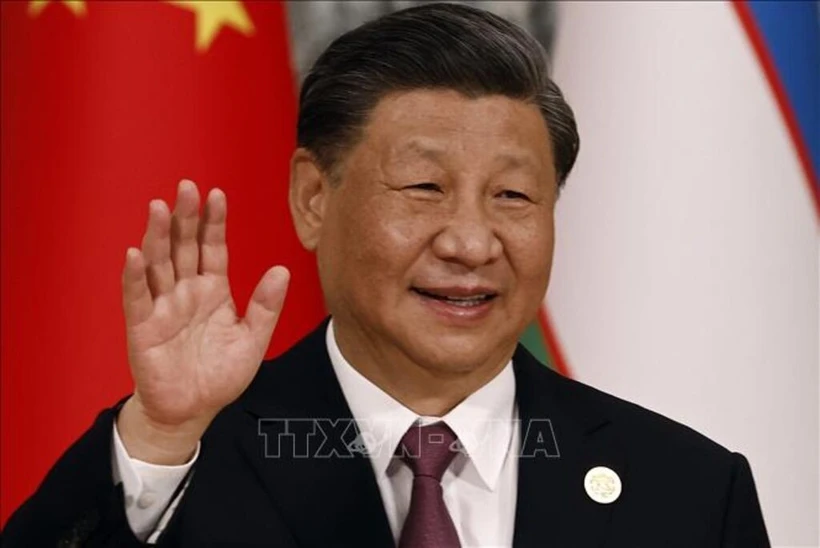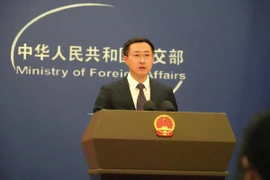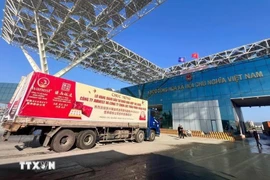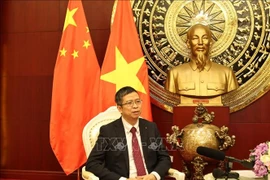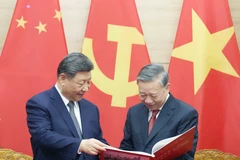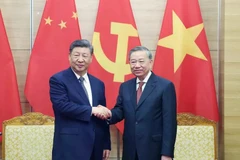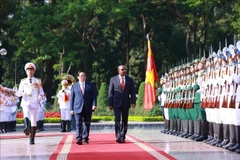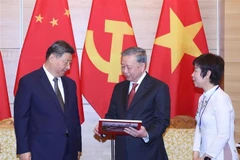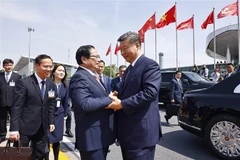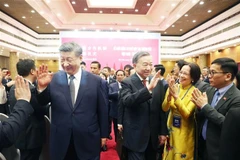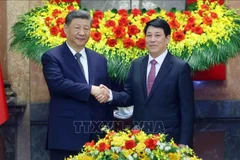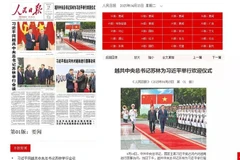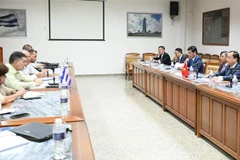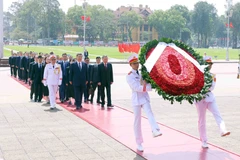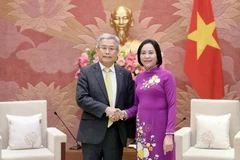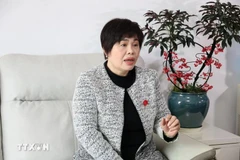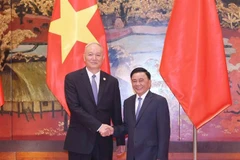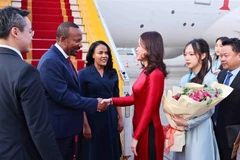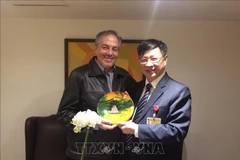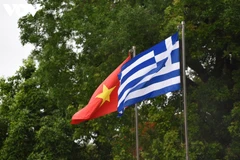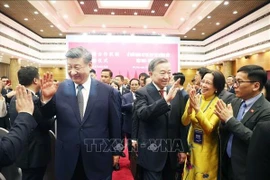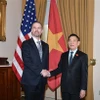Hanoi (VNA) – The state visit to Vietnam by General Secretary of the Communist Party of China (CPC) Central Committee and President of China Xi Jinping is expected to create new development steps in Vietnam-China relations, said Nguyen Vinh Quang, Vice President of the Vietnam-China Friendship Association.
Speaking to the Vietnam News Agency (VNA)'s reporter ahead the visit, Quang said that in history and in recent years, all visits by the highest leaders of China to Vietnam have been of important significance.
This year holds particular importance, as the two countries are celebrating the 75th founding anniversary of diplomatic relations, and leaders of the two countries designated 2025 as the Year of Vietnam - China Humanistic Exchange. Therefore, Xi’s visit is even more meaningful, marking the beginning of a series of upcoming exchanges. This is also his first official overseas trip in 2025, indicating that China places great importance on this event.

It is expected that through this visit, the leaders of both countries will exchange ideas and reach new common perceptions, taking the bilateral relationship to a new level. Specifically, the two sides are expected to reach several agreements on economic and trade cooperation, investment, and further facilitate the flow of goods, helping to narrow the trade balance gap between the two countries.
“I also hope that the issue of infrastructure between the two countries will be addressed this time, leading to agreements that facilitate the export of Vietnamese goods to China, especially agricultural and aquatic products,” Quang said.
Regrading the two countries’ agreement on building the Vietnam-China community with a shared future that carries strategic significance, Quang said that over the past year, the agreement has had a profound impact on the perceptions of the leaders and people of both countries, creating a positive momentum to promote the development of the bilateral relations.
The most noticeable change is the increase in trust and affection between the two nations. There is greater trust in society, among leaders, and within ministries, sectors, and businesses of both countries. Last year, businesses from both sides demonstrated increased confidence in each other, and economic and trade cooperation developed impressively. In 2024, trade turnover exceeded 200 billion USD according to Vietnamese statistics and 260 billion USD according to Chinese data. Vietnam remains the largest trading partner in ASEAN and the fourth-largest trading partner of China globally. China is the largest market for Vietnam's agro-forestry-aquatic product exports, providing tangible benefits to millions of Vietnamese farmers.
Emphasising the role of people-to-people exchanges in promoting the two countries’ relations, Quang said that Vietnam and China have a relationship spanning thousands of years based on the relations between their people, with a clear cultural exchange. Over the past 75 years, this exchange has fostered an increasingly close and robust relationship between the two countries. The friendship can only be built on the basis of mutual understanding and empathy. To foster mutual understanding, people-to-people exchanges must be enhanced.
Quang said that during Chinese Party General Secretary and President Xi Jinping's visit to Vietnam in 2023, leaders of both countries discussed and proposed the "six major orientations” to promote the stronger development of the bilateral relations. The orientations refer to how to establish higher and more solid political trust between the two countries. To solidify relations, the first priority is political trust, followed by cooperation in security and defence, as well as more substantive and effective economic and trade partnerships, ultimately creating a stronger social foundation - a more solid foundation of public support.
Therefore, people-to-people exchanges, particularly exchanges between mass organisations and among youths from the two countries need to be strengthened to achieve this goal, he added./.
